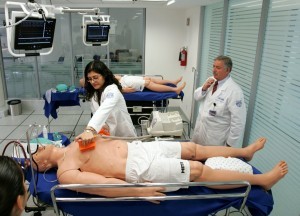Greeks place a great deal of importance on education and knowledge, and despite the economic crisis that has hit country since 2010 and a great brain drain, it is among the smartest countries when it comes to students graduating with science degrees. According to the Organisation for Economic Cooperation and Development (OECD), which tracks the college degrees. The ranking is based on the percentage of science, technology, engineering, or math (STEM) degrees awarded per capita so that it’s a fair comparison between countries with different populations. For example, Spain ranked 11th by awarding 24% of its degrees in the natural sciences or engineering.
Here’s how 10 of the smartest countries in the world stack up when it comes to science degrees:
10. Portugal had 25% of its students graduate with a STEM degree. It has the highest percentage of doctorate holders — 72% — that work in education of all 40 countries surveyed.

9. Austria (25%) has the second-highest number of working-age PhDs, with 6.7 female and 9.1 male doctorate holders per 1,000 people.

8. Mexico moved up from 24% in 2002 to 25% in 2012, despite the government abolishing tax breaks for businesses investments in research and development.

7. Estonia (26%) has one of the highest percentages of female STEM graduates, at 41% in 2012.

6. Greece spent only 0.08% of its GDP on research in 2013, which was one of the lowest reported among developed countries. It might explain why its STEM degree rate dropped from 28% in 2002 to 26% in 2012.

5. In France (27%), most researchers are employed by industry rather than the government or universities.

4. Finland (28%) publishes more research about medicine than in any other field.

3. Sweden (28%) is just behind Norway for most computer use at work, including for applications like programming. Over three-quarters of workers use computers at their jobs.

2. Germany (31%) had the third-highest average annual raw number of STEM graduates at about 10,000, right behind the US and China — despite those countries’ much larger populations.

1. South Korea (32%) had the top 10’s largest drop, from 39% in 2002, even though the country retained its position at the top of the OECD’s list.

source: businessinsider
Ask me anything
Explore related questions





